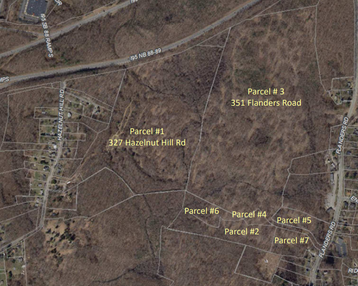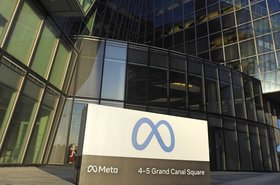The town of Groton, Connecticut, has banned data centers larger than 12,500 sq ft (1,200 sqm), after a year-long moratorium.
The decision, at a planning meeting this week, will allow local enterprises to build their own on-premises facilities, while banning hyperscale developers, reports CT Examiner. It follows years of efforts by warring startups GotSpace and NE Edge, to place large facilities at sites where they can benefit from power from the Millstone nuclear power station in London County.
On Tuesday, Groton's Planning and Zoning Commission unanimously approved regulations to limit the size of data centers, following a survey that found that large Groton businesses, including Pfizer, all used smaller, on-site data centers for storage and computing.
“I believe the largest one is Pfizer and that was about 12,000 square feet,” commission member Susan Sutherland told the meeting.
The new rules come after a year's moratorium on developments bigger than 5,000 sq ft. This was announced in June 2022, after proposals for two 250,000-square-foot, facilities near Interstate 95.
Anticipating an end to the moratorium, NE Edge had filed plans for a 1.5 million sq ft (140,000 sqm) data center campus located at Millstone in February and proposed a Host Municipality Agreement offering $230 million over 30 years in lieu of property taxes. The data centers would have had nuclear electricity directly, in a ‘behind the meter’ agreement.
The 2.1GW Millstone site launched in 1971; it is the only nuclear power plant in Connecticut and the only multi-unit nuclear plant in New England.
NE Edge co-founder Thomas Quinn was formerly president and CEO of Verde Group LLC, a firm that secured site plan approval in Montville Connecticut in 2019 but never broke ground.
When Connecticut introduced data center tax cuts in 2021, Quinn launched GotSpace Data Partners, proposing to develop data centers across the state in Wallingford, Groton, Norwich, Griswold, and Bozrah. However, Bozrah and Wallingford rejected the plans, partly due to concerns about the company’s stability and commitment to the projects.
Quinn split with GotSpace and launched NE Edge with lawyer and property investor George A. McLaughlin. NE Edge proposed to develop two 250,000 sq ft (23,225 sqm) data centers in Groton, less than 15 miles from the Millstone site. Town officials eventually decided to cease discussions with the company.
NE Edge also proposed a 980,000 square foot (91,00 sqm) building in Bozrah, another town where GotSpace had been aiming to develop facilities.
What remains of GotSpace is suing NE Edge, demanding a massive $30 billion and citing bizarre claims of hacking and government conspiracy. GotSpace also still lists plans to develop six data centers across two campuses in Groton and three buildings at one campus in Bozrah, with more planned across the state.
GotSpace CEO Nicholas Fiorillo was apparently present at Tuesday's planning meeting, saying that the town of Groton was also named as a defendant in the lawsuit for a “conspiracy to limit the development of data centers.”
Fiorillo fired questions at the commission but they declined to respond on advice from Deborah Jones, assistant director of planning.
At the meeting, Chris Regan, who has worked for NE Edge, said he thought the new regulations were a mistake: “What you guys are doing with this regulation is eliminating entirely a data center coming into this town, and that’s the future. They’re going to be required for self-driving vehicles throughout the area. … There has to be a data center in this area for that to happen. The industry wants to come here, so I just think that you are cutting with technology that is going to be in the future.”




